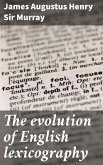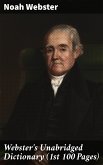In the "Preface to a Dictionary of the English Language," Samuel Johnson presents not only a comprehensive guide to the English language but also a profound exploration of its intricacies and nuances. Written in a period marked by linguistic evolution, Johnson's preface employs an eloquent style that marries clarity with intellectual rigor, offering insights into the moral and philosophical dimensions of language. This seminal work lays the groundwork for lexicography, addressing the necessity of a standardized language while highlighting the dynamism inherent in words, their meanings, and their usage over time. Samuel Johnson (1709-1784), an influential writer and lexicographer of the 18th century, was motivated by a keen interest in etymology and societal standards. His experiences as a poet, essayist, and wit shaped his understanding of language's role in culture and communication. Throughout his life, he faced personal adversities, including bouts of ill health, which further influenced his reflective approach to literature and the power of words. The "Preface to a Dictionary of the English Language" is not merely a prelude to a lexical reference; it invites readers to contemplate the beauty and complexity of their own linguistic heritage. For anyone seeking to understand the evolution of English or the philosophical underpinnings of lexicography, this work stands as a crucial reference point.
Dieser Download kann aus rechtlichen Gründen nur mit Rechnungsadresse in A, B, BG, CY, CZ, D, DK, EW, E, FIN, F, GR, H, IRL, I, LT, L, LR, M, NL, PL, P, R, S, SLO, SK ausgeliefert werden.
Hinweis: Dieser Artikel kann nur an eine deutsche Lieferadresse ausgeliefert werden.









